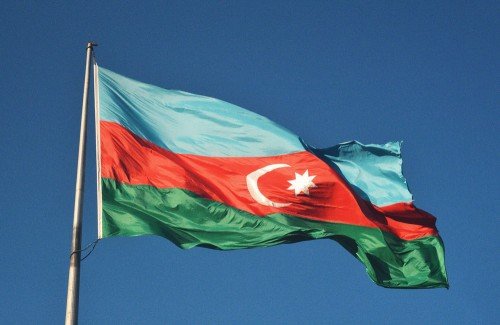
Azerbaijani, also known as Azeri, is a Turkic language spoken primarily in Azerbaijan and Iran. It is the official language of Azerbaijan and one of the official languages of Iran. Here are some interesting facts about the Azerbaijani language:
-
Azerbaijanis use two writing systems: The Azerbaijani language is written using both the Latin and Cyrillic alphabets. The Latin alphabet was adopted in Azerbaijan in 1991, while the Cyrillic alphabet is still used in some parts of Iran.Azerbaijanis use both the Latin and Cyrillic alphabets to write Azerbaijani. The Latin alphabet was adopted in Azerbaijan in 1991 after the collapse of the Soviet Union, while the Cyrillic alphabet is still used in some parts of Iran. The Azerbaijani language had been written in the Arabic script before the Soviet era, but it was replaced by the Latin alphabet during a period of cultural reform in the early 20th century. Later, during the Soviet period, the Cyrillic script was also used to write Azerbaijani. Today, both the Latin and Cyrillic scripts are officially recognized for use in Azerbaijan, although the Latin script is more commonly used.
-
Azerbaijani is an agglutinative language: This means that words are formed by stringing together morphemes, which are small, meaningful units of language. For example, the Azerbaijani word "evlərindən" (from their houses) is made up of the morphemes "ev" (house), "lər" (plural), "in" (genitive case), and "dən" (from).Azerbaijani is an agglutinative language, which means that words are formed by adding affixes, or morphemes, to a base or root word. These affixes convey meaning such as tense, aspect, case, possession, negation, and other grammatical features. In Azerbaijani, new words can be created by stringing together multiple morphemes, resulting in long words that can express complex ideas in a relatively compact form. For example, the word "göyərtə" in Azerbaijani means "to the sky" and is formed from the root "göy" (sky) and the suffixes "-ə" (to) and "-rtə" (directional case).
-
Azerbaijani has a rich vocabulary: The language has borrowed words from Arabic, Persian, and Russian, among other languages. For example, the Azerbaijani word for "thank you" is "sağ ol" which is derived from the Arabic word "sahha" (health).Azerbaijani has a rich vocabulary that reflects its complex history and cultural influences. Over the centuries, the Azerbaijani language has borrowed words from Arabic, Persian, Turkish, Russian, and other languages. This has resulted in a diverse and dynamic vocabulary that includes words for various concepts, including science, technology, politics, and culture. For example, the Azerbaijani word for "computer" is "kompüter", which is borrowed from the English word "computer", and the word for "telephone" is "telefon", which is borrowed from French. At the same time, Azerbaijani has also developed its own unique vocabulary, with words that reflect the culture, history, and traditions of Azerbaijan.
-
Azerbaijani has multiple dialects: There are several dialects of Azerbaijani, including North Azerbaijani, South Azerbaijani, and Iranian Azerbaijani. The dialects differ in their vocabulary, grammar, and pronunciation.
-
Azerbaijani is a phonetic language: Unlike English, where the spelling of words can be inconsistent with their pronunciation, Azerbaijani words are usually pronounced the way they are spelled. This makes the language relatively easy to read and write.
-
Azerbaijani has a rich literary tradition: Azerbaijani literature dates back to the 13th century, and includes works by famous poets such as Nizami Ganjavi and Fuzûlî. Azerbaijani literature has been influenced by Persian, Arabic, and Turkish literature.
-
Azerbaijani has a complex system of vowel harmony: In Azerbaijani, the vowels in a word must all be either front vowels (i, e, ö, ü) or back vowels (ı, a, o, u). This system of vowel harmony is similar to that of Turkish and other Turkic languages.
-
Azerbaijani has official status in several countries: In addition to Azerbaijan and Iran, Azerbaijani is also recognized as an official language in the autonomous region of Nakhchivan in Azerbaijan, and in the Republic of Dagestan in Russia.Azerbaijani has official status in several countries, including Azerbaijan, Iran, the Republic of Dagestan in Russia, and the autonomous region of Nakhchivan in Azerbaijan. In Azerbaijan, Azerbaijani is the official language and is used in government, education, media, and other official contexts. In Iran, Azerbaijani is one of the official languages of the country, alongside Persian. In the Republic of Dagestan in Russia, Azerbaijani is recognized as one of the official languages of the region. In the autonomous region of Nakhchivan in Azerbaijan, Azerbaijani is the sole official language. In addition, Azerbaijani is also spoken by significant numbers of people in other countries, including Turkey, Georgia, and Russia.
In conclusion, the Azerbaijani language is a fascinating and complex language with a rich cultural history. Whether you're interested in linguistics, literature, or simply learning about new languages, Azerbaijani is definitely worth exploring.








